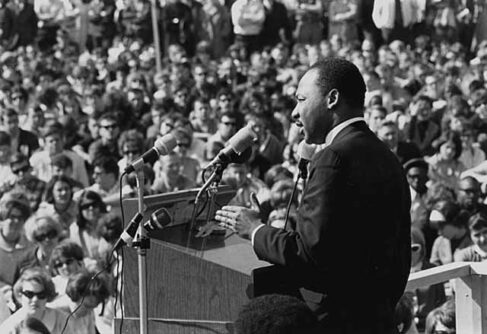To speak of philanthropy as “giving back” rather than simply of “giving” makes philanthropy seem to be a matter of justice rather than of generosity, stripping it of its moral character.
Philanthropy is sometimes described as a way to “give back”—to make good on having done well through supporting others. Since we cannot flourish apart the social and civic institutions that ensure our freedom and create the possibility of prosperity, it seems right that those who have prospered might owe something back to their community.
And, indeed, those who have prospered should be liberal and generous.
But to be liberal and generous is rather different from “owing” something, or having an obligation to “give back.” “Giving back” suggests restoring something to its true owner, and handing it over is a matter of simple justice rather than of virtue. So to speak of philanthropy as “giving back” rather than simply of “giving” makes philanthropy seem to be a matter of justice rather than of generosity, and strips philanthropy of its moral character.
(“Paying it forward” has something of the same suggestion as “giving back”—one received a benefit from others and one is simply passing it along.)
All this nitpicking about “giving” vs. “giving back” might seem pedantic, but it has true policy implications. University of Chicago political scientist Chiara Cordell, in a recent essay titled “The Problem with Discretionary Philanthropy,” argues that the moral core of philanthropy ought to be about “giving back” what is owed by the wealthy to “their fellow citizens who suffer from deprivation as a consequence of insufficient public provision by the government.”
In her view, the wealthy can be philanthropists only because they have resources that, in a more just society, would be distributed to others. Philanthropy is merely a way of redistributing resources to achieve that more just society—and the philanthropist is not truly generous or virtuous but merely just.
In order to enforce this view of philanthropy, Professor Cordell argues that government policy should be “focusing [philanthropy] to track principles of justice.” How can governments do that? Professor Cordell recommends that:
…governments should strive to minimize donors’ discretion, for example by matching tax deductions with specific causes.
This particular suggestion has been advanced by others, including Yale economist and Nobel Laureate Robert Shiller. Imagine that a taxpayer could claim a charitable deduction on his Schedule A only if his charitable contributions had gone towards those in policy areas certified by the government as worthy—would that policy encourage philanthropy? I think not.
Professor Cordell is willing to go even further, and makes the radical suggestion that a government could restrict people from making donations to otherwise legal causes:
…there may even be reasons to restrict philanthropy when it threatens public commitments to political equality and fair equality of opportunity.
True philanthropy is an exercise of generosity—of giving, rather than of giving back, and a free society should honor and cultivate the notion that philanthropy is a matter of generosity rather than of justice.
(For further reflections on “giving” rather than “giving back,” interested readers should read the terrific essay by University of Virginia political scientist James Caesar, “No Thanks to Gratitude,” which counters Professor Cordell’s essay very nicely.)
Photo credit: id-iom via Visual hunt / CC BY-NC







Bravo. The whole rhetoric of “giving back”, implying moral obligation, is antithetical to the core notion of “philanthropy”, which is “loving what it is to be human.” Both donors and beneficiaries become more fully humane in the exercise of philanthropy—”private initiatives for public good.” To introduce any kind of overseers or accountability subverts the free private initiative of donors, and while we may not agree with everything they support, we should remember that every major advance in human rights—anti-slavery, democracy, women’s suffrage, environmentalism, etc.—began with private philanthropy that was considered subversive and counter-cultural at the time.
That’s the whole point. God gave me the money, and if I’m “giving back,” it’s to God.